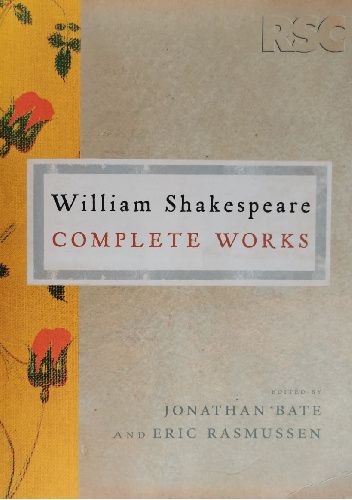

In fact, the RSC Shakespeare contains several works not in the First Folio, including Pericles and The Two Noble Kinsmen, the two narrative poems, the Sonnets, “The Phoenix and the Turtle,” and a short epilogue to a court performance entitled “To the Queen,” characterized as “beautifully turned” (2395) but with its attribution to Shakespeare not otherwise explained. But first I want to examine the edition’s main claim to uniqueness-that it is the first modern edition of the Folio. Besides the photographs, the only link to the RSC is a one-page foreword by Michael Boyd, the Company’s current artistic director, in which he offers a few familiar bromides: that the plays are scripts and not literature (that they could be both is never considered) that although the plays may be difficult to appreciate, the reader should not be put off by them but should trust the author and, most of all, trust this “Folio-based text.” (There is also a puff from Dame Judi Dench on the back cover.) So for those of us looking for perspectives on performance, this text offers less than it promises and when one starts looking carefully at particular textual choices, especially those involving stage directions, one comes across what sometimes looks like performance amnesia. Nor is there any serious attention to staging in the introductions to the individual plays, or anything in the “Key Facts” boxes that preface each play there are some “directorial” stage directions printed in the margins, but these are sporadic, random, often obvious, and sometimes questionable. But there is no stage history (unlike the Riverside or Norton editions), no discussion of the generation of meaning through performance, no analysis of the vexed relations between page and stage. There is the usual coverage of playhouses and acting companies that one finds in most modern Complete Works, handled very adroitly. But there is no sustained attention to performance.

In the general introduction, expertly written by Jonathan Bate, there are some fine insights into the resonances of Shakespeare for our world, with occasional references to famous productions.

Aside from twenty-eight handsome photographs, all but one from RSC productions, there is nothing especially performance oriented about this text. But one looks in vain for this promised attention. The blurb distributed with free copies at the 2007 meeting of the Shakespeare Association of America made these points and promised extensive attention to performance issues, as a feature derived from the RSC connection. The first question about this new edition is bound to be, what need of another Complete Works? The answer, according to its publisher and editors, is its uniqueness: the only fully modernized edition of the 1623 Folio ever produced, and the first complete Shakespeare to be prepared under the auspices of the Royal Shakespeare Company (RSC).


 0 kommentar(er)
0 kommentar(er)
